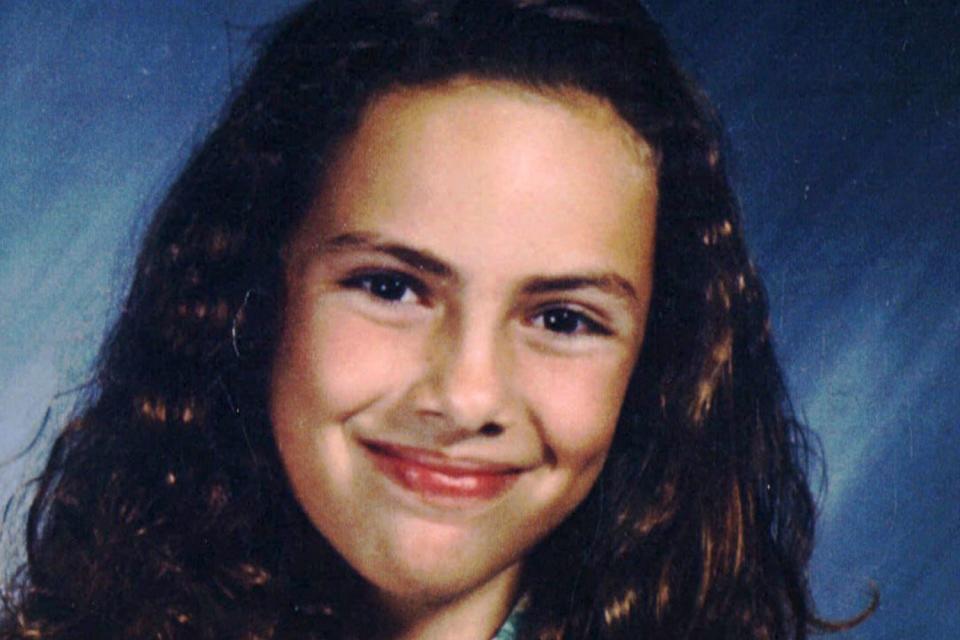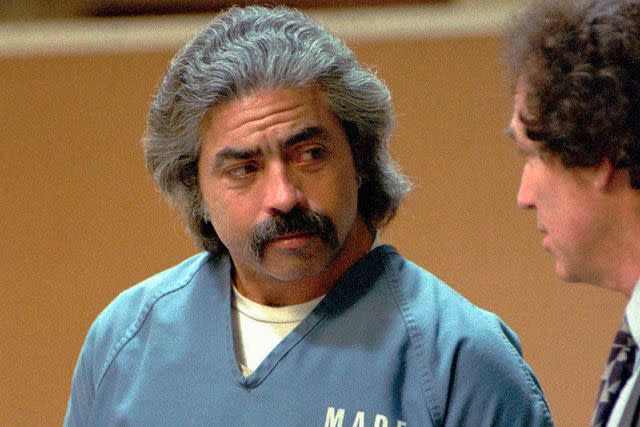Everything to Know About the Polly Klaas Murder Case 30 Years After Her Remains Were Discovered
Polly Klaas was 12 when she was abducted on Oct. 1, 1993 from her home in Petaluma, Calif. Her remains were discovered two months later on Dec. 4

AP Photo/File
Polly KlaasPolly Klaas was 12 years old when she was abducted on Oct. 1, 1993 from her home in Petaluma, Calif., where she was having a slumber party with two 12-year-old classmates. Her kidnapping sparked a nationwide search with thousands of volunteers and made her a household name.
The search for Polly sadly ended two months later when her strangled body was found in a wooded area about 50 miles away. Her murder by Richard Allen Davis — an ex-con with a history of alcohol and drug abuse who was out on parole following a previous kidnapping — prompted outrage and demands for harsher sentencing laws.
A year after Polly’s murder, California voters adopted the “three strikes and you’re out” law, which called for increased prison sentences for repeat offenders like Davis. Davis was convicted of her killing in 1996 and sent to San Quentin’s death row where he currently remains. However, as of June of this year, executions have been halted in the state of California.
Here's everything to know about the Polly Klaas murder case.
Polly Klaas was abducted from her Petaluma Home
On Oct. 1, 1993, Polly was enjoying a slumber party with two friends while her mother Eve and sister Annie slept in another room of the family’s three-bedroom home.
Sometime after 10:30 p.m., Davis climbed through a window and entered Polly’s bedroom holding a knife and a bag. He threatened to slit the throats of Polly and her two friends before forcing them to lie down in a row on the floor. He then gagged them and tied their hands.
He told Polly’s classmates he was taking her to collect valuables and would bring her back. After he left with Polly, the girls were able to untie themselves and alert Polly’s mother who called the police.

How Davis was Caught
Less than two hours after Polly was abducted, Davis drove his white Ford Pinto into a ditch on a private road between Santa Rosa and Sonoma. A property owner called police and his car was searched but police, who were unaware of Polly’s abduction at this time, released him.
Weeks later, on Nov. 27, the property owner called police again after finding red children’s knitted tights, a sweatshirt and a knotted piece of white silky cloth, which was later matched to the cloth used to bound the girls. Davis was arrested two days later, on Nov. 30, and admitted to killing Polly within two hours of her kidnapping.
On Dec. 5, he led police to her decomposing remains, which were hidden under a piece of plywood. Authorities later linked a palm print found in Polly’s bedroom to the convict. Two strands of his hair as well as carpet fibers were also found in Polly’s bedroom.

AP Photo/Paul Sakuma
Richard Allen DavisDavis was a career criminal
Raised by an alcoholic father in a trailer park in La Honda, a mountain community 45 miles south of San Francisco, Davis started stealing checks from people’s mailboxes at age 12 and eventually graduated to burglary, grand theft, assault with a deadly weapon and kidnapping.
Davis abducted a young woman by knifepoint at a commuter train station near Oakland in 1976, and in 1984, he kidnapped another woman at gunpoint from her apartment in Redwood City and forced her to withdraw $6,000 from a bank account, the Los Angeles Times previously reported. He was sentenced to 16 years in prison for his crimes, but was paroled early — just months before Polly’s murder.

AP Photo/File
Polly KlaasThe aftermath of Polly’s Death
After Polly's death, foundations were formed in her honor. The Polly Klaas Foundation was founded in 1993 to raise awareness of child abductions and has helped “more than 10,000 families find their missing children,” according to its website. The following year, Polly’s father, Marc Klaas founded the KlaasKids Foundation, which “promotes prevention programs for at-risk youth, stronger sentencing for violent criminals and governmental accountability and responsibility.” Klaas is also a visible advocate for missing children and tougher crime laws.
Related: Drawing Strength from Sorrow: The Surviving Parents Coalition
Want to keep up with the latest crime coverage? Sign up for PEOPLE's free True Crime newsletter for breaking crime news, ongoing trial coverage and details of intriguing unsolved cases.
Polly’s murder also helped prompt California voters in 1994 to adopt the “three strikes and you’re out” law, which called for increased prison sentences for repeat offenders like Davis. The law was later modified because it unfairly targeted communities of color and incarcerated people for non-serious and non-violent offenses.
Polly’s sisters Jess and Annie Nichol recently became vocal opponents of the three-strikes law. In 2021, they launched a podcast called A New Legacy, which focuses on finding alternatives to mass incarceration and tough-on-crime initiatives.
“Rather than incarcerating people after the fact, we are looking for ways to prevent crime by seeking out restorative and community-based solutions that address violence at the source,” they wrote in a description of the podcast. “In speaking with the community leaders who have been forging this path forward, we will explore scientifically-proven alternatives to incarceration. These strategies include rehabilitation and reentry services, community-based violence intervention, restorative justice, trauma treatment, substance abuse support, and combating economic inequality.”
For more People news, make sure to sign up for our newsletter!
Read the original article on People.


